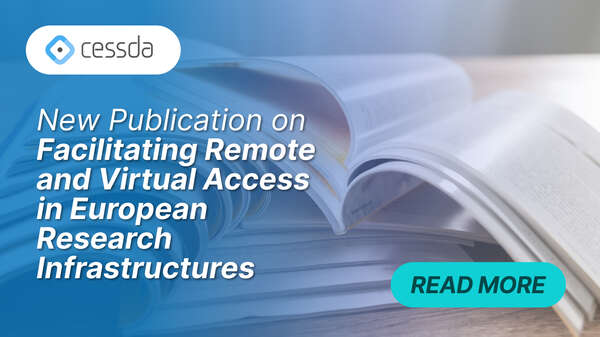
New Publication on Facilitating Remote and Virtual Access in European Research Infrastructures
CESSDA is pleased to announce the publication "Facilitating Remote and Virtual Access Provision by European Research Infrastructures – Requirements, Issues, and Recommendations." This peer-reviewed paper, authored by a diverse team of experts, including CESSDA Service Providers and the CESSDA Main Office. The publication focuses on the critical role of remote and virtual access in advancing scientific research across various disciplines in the evolving Research Infrastructures (RIs) landscape in Europe, a process that has been accelerated due to the COVID-19 pandemic.
This article offers a comprehensive overview of the current state of different remote and virtual access models of RIs in Europehow they are implemented, the challenges they pose, and the benefits they offer.
The authors draw on extensive research conducted through targeted surveys, stakeholder workshops, expert group discussions, and analysis of specific use cases within the eRImote project.
The paperoutlines some of the challenges that RIs face when implementing remote and virtual access. These include logistical and regulatory hurdles, the need for robust cybersecurity measures, and the complexities of maintaining high operational efficiency when access is provided remotely. Moreover, the shift to remote and virtual access can alter the dynamic between RIs and their users, potentially transforming these relationships from collaborative partnerships to more service-oriented interactions.
The authors present a series of recommendations toenhance the effectiveness of remote and virtual access. These include advanced training, advocating for a unified European regulatory framework for the shipment of scientific samples, investing in cybersecurity infrastructure, and developing best practices for remote instrument control among many others.
The paper also stresses the importance of continuous monitoring and evaluation to assess the impact of remote access on research quality and environmental sustainability.
The work has been undertaken under the EC-funded project eRImote (grant agreement No.101057557).
The full article is available here.